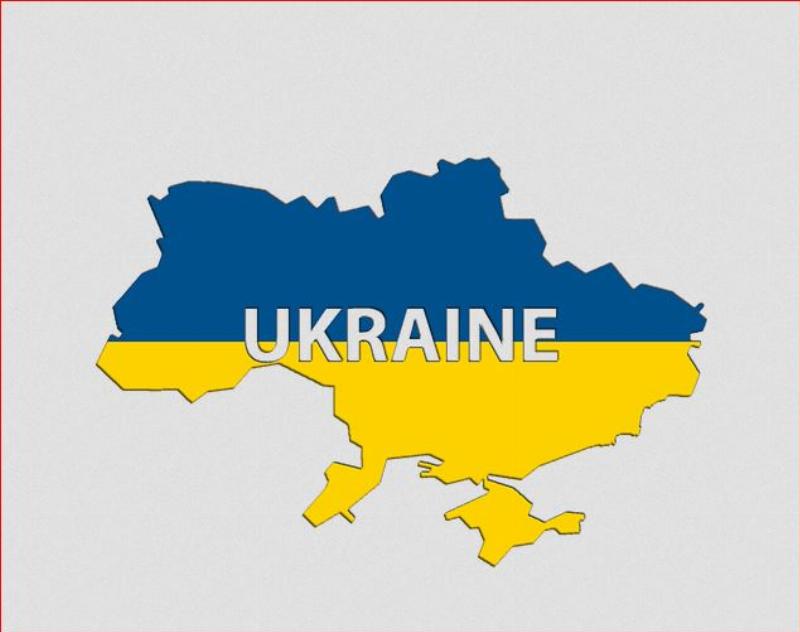An independent, neutral Donbass Republic may be a way to end the Russia Ukraine war

The Russian Ukraine war is a typical European war. It stems from similar cultures clashing over the right to hold onto their unique characteristics which separate them.
In this case that distinctive feature is linguistic in the difference between the Ukrainian and Russian languages.
To an American observer, distinction in the language you speak is not a big deal because the United States of America is founded on a shared idea. Which is captured in its Constitution which creates a nation roughly based on a notion of shared values. While in Europe and elsewhere rather than shared ideals, most nations owe their existence to not sharing specific ideas but shared ancestry, language, or in rare cases, a shared monarchy.
The Ukraine people’s right to nationhood is based on a linguistic claim. Russia seeks to invalidate that claim by claiming Ukraine shares ancestry with Russia and belongs to the same state. Both claims historically have validity in a European framework of nationhood.
An example is Portugal which shares ancestry with the Spanish people but its unique language has led to it having its own nationhood. Cypress, despite being divided between Turkish and Greek speakers, is a nation because of some kind of core belief in common ancestry despite the linguistic divide on the island, even if at times this view of history is challenged by other historical narratives which do at times cause conflict on the island .
There are territorial nations too few in number like Switzerland born of a mix of different ancestors from France , Germany and Italy. Merely blended together by a shared homeland. Now we get the idea of how European nations are generally bound together as nations. Some will turn round what I am describing with the argument that these are ethno-states and not nations. In Europe the simple truth is that ethno-states simply became nation-states with a few exceptions, which isn’t what happened elsewhere.
I have accepted there are different bases for distinctive nations. I would say this understanding accepts Anthony D. Smith’s ideas, from his great book of 1991 on national identity. I also have highlighted the cases put forward by famous sociologist and sociology founding father Max Weber who understood nations as imagined linguistic communities. I also dare to put forward Ernest Renan’s conception of nations based on a shared homeland hinted at in his 1992 essay, “What is a Nation?”
In so doing, I have attempted to explain Europe’s complex nation-building which any person can see is different, depending on the nation.
When it comes to Ukraine, putting your seatbelt on is ridiculously hard to comprehend. Ukraine began as a medieval kingdom where a number of Slavic tribes who spoke similar but probably not the same language were united by Viking rulers from Sweden roughly some time around 800 A.D.
The Swedish element is often forgotten when Russia thinks of this history, interestingly enough.
The many different Slavic tribes for a time were united under a central monarch of the Kievian Rus state.
Russia’s claim comes from this argument, that during this period, such a intermarriage between these different Slavic peoples and other groups occurred that all the people of Ukraine, Belarus and Russia share a common ancestry.
Even after the fall of the Kievian Rus state, the Russian Empire under the czars which replaced it centuries later created such a intermarriage of culture that everyone in all three nations, to them, are Russian, and specifically so in the Donbass region. That’s the region Russia desires most of all Ukraine territory.
The Ukrainians argue strongly that not everyone in modern Ukraine would have been part of the historic Kievian Rus state. Which means many people who speak the Ukrainian language never were part of Russia and do not share ancestry with the Russian people especially in the Donbass region. Beyond this, Ukraine argues that a high intermarriage rate isn’t the same as a shared ethnic identity in the modern world.
It is a mess of conflicting claims. This is without bringing in Russia and Ukraine security concerns for their nation’s future, which makes the situation even more frustratingly complex. This isn’t the first time in European history that such a circumstance of conflicting claims to land has happened.
The tiny nation of Andorra sits between France and Spain. It historically was claimed by both until a compromise was reached to allow it to continue to be an independent nation with close diplomatic ties to France and Spain. Its security is guaranteed by France and strangely, its governance is overseen to an extent by a Spanish Catholic bishop. That arrangement makes both nations happy and the Andorrans happy, too.
A similar solution could be had in which an independent Donbass Republic could be initiated, which wouldn’t be part of NATO or a Russian Oblast.
It could be an independent nation without any linguistic preference for the Russian or Ukrainian languages, whose security could be guaranteed by a neutral third party like Turkiye or another nation which has good relations with both Russia and Ukraine. It could offer a foundational out-the-box solution to the current war between Russia and Ukraine.
This is one of many ways of looking at the issue and I write to highlight it as an option. I respect that there are other ways to end the conflict; this isn’t the only route to peace. The question of Crimea must be tackled separately at a later date.
Image: Pixabay / Pixabay License


